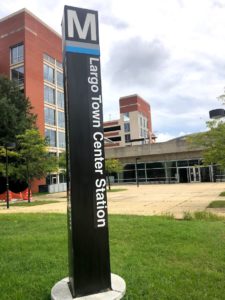Our Montgomery Better Buses coalition of nearly 30 organizations is pushing for investments in Bus Rapid Transit construction, bus lanes, free fares, pre-pandemic service, and electrification.
Category: Maryland
CSG Testimony to County Council on Silver Spring Downtown & Adjacent Communities Plan
We support the draft of the Silver Spring Downtown and Adjacent Communities Plan, although we believe there is room for improvement to think more strategically, creatively, and boldly about certain elements, such as affordable housing.

Joint Statement on OLO Initial RESJ Review of Thrive 2050
The Coalition for Smarter Growth, Montgomery for All, Audubon Naturalist Society, Montgomery Housing Alliance, and the Washington Area Bicyclists Association believe in the overarching vision of Thrive 2050, which promotes equity and sustainability through affordable housing, more housing options, improved transit, walkable communities that improve access to jobs, and more.
Report says Montgomery County has good bus service, but region needs more investment
A report released Thursday by a regional coalition of business and smart growth organizations commends Montgomery County for its Flash bus service and free fares for Ride On service, while urging improvements for bus service across the region.
Support for the Prince George’s County Draft Climate Action Plan and Needed Improvements
Memorandum to the Prince George’s County Council
Sign-on letter regarding Thrive 2050 work sessions
The undersigned organizations urge you to expeditiously schedule work sessions and a vote on Thrive Montgomery 2050 to follow the regional citizens advisory board listening sessions and conclude prior to the County Council’s work on the operating budget.

RELEASE: MetroNow Bus Transformation Project Progress Report
In response to the region’s critical transit needs, leading transportation coalition launches the Bus Champions Roundtable, a series of targeted discussions with regional leaders to align priorities and accelerate bus transformation progress.
RISE Prince George’s Platform 2022
Summary of platform:
Full platform:

